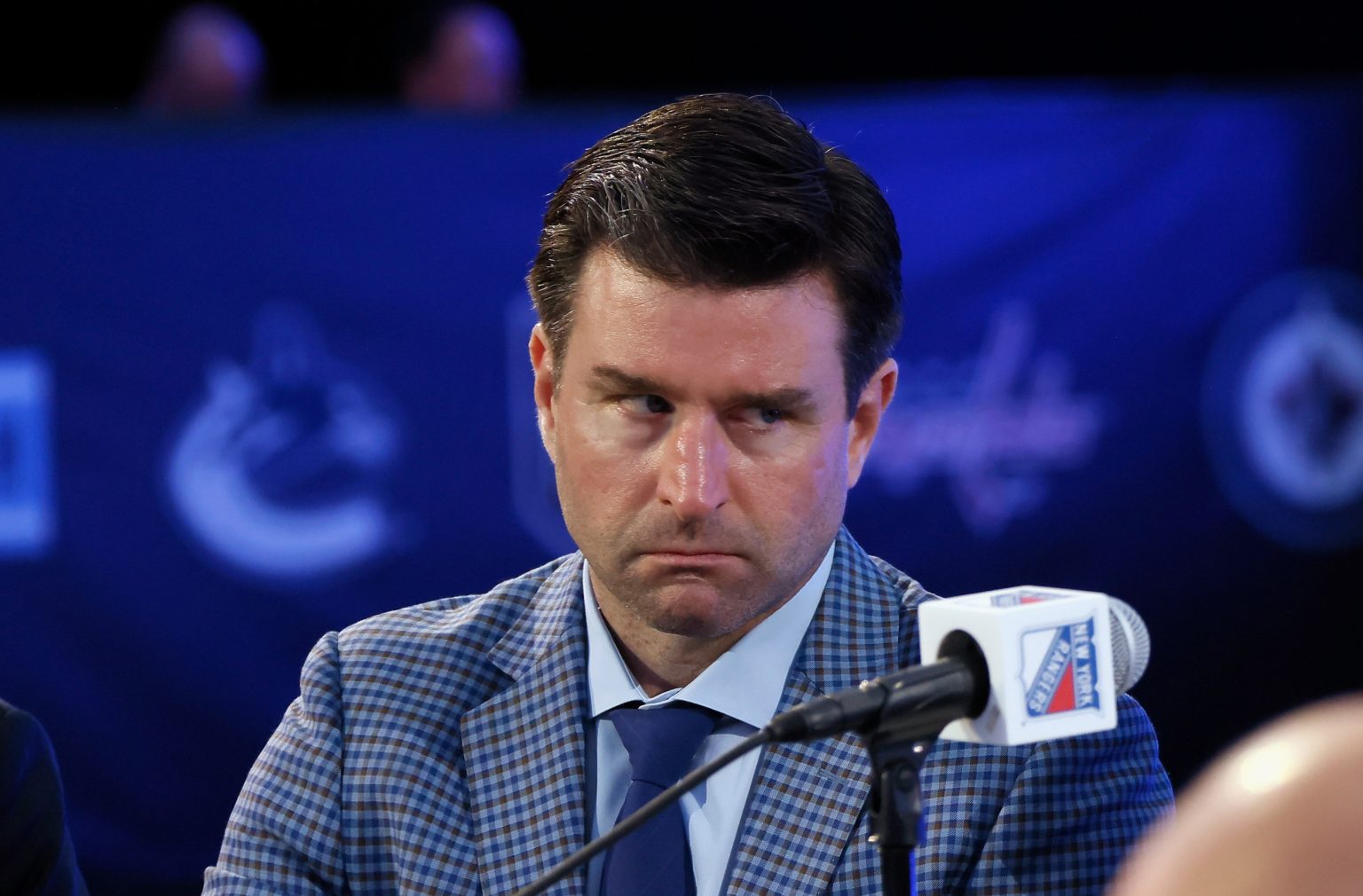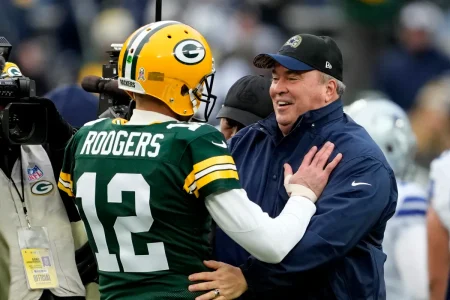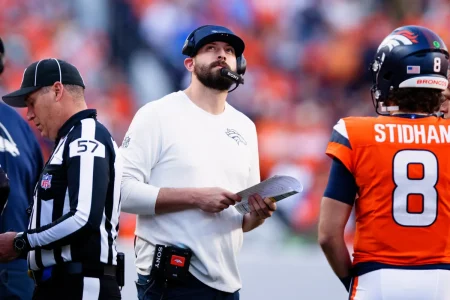The New York Rangers find themselves in a precarious position, teetering on the edge of playoff contention with every game holding immense significance. Their current standing, four points outside the playoff picture, creates a high-pressure environment for General Manager Chris Drury, who must navigate the upcoming trade deadline with strategic precision. The team’s recent performance falls short of the lofty expectations set after last year’s Presidents’ Trophy win and Eastern Conference Final appearance, forcing Drury to weigh the options of buying to bolster the current roster or selling assets to secure future prospects. This dilemma is amplified by the recent trades of former captain Jacob Trouba and high draft pick Kaapo Kakko, leaving the Rangers in a state of flux, balancing a roster still capable of competing with the potential for a more substantial restructuring. The trade rumors swirling around long-tenured players Chris Kreider and Mika Zibanejad further complicate the situation, adding another layer of uncertainty to the Rangers’ immediate future.
The Rangers’ recent history suggests a full rebuild is unlikely, given the impatience characteristic of the New York market. Their 2018 rebuild was swiftly followed by the acquisition of Artemi Panarin and Adam Fox, along with the opportune drafting of Alexis Lafreniere. This rapid turnaround demonstrates the unique advantages enjoyed by an Original Six franchise like the Rangers, often attracting top talent and benefiting from fortunate circumstances. However, considering the team’s deep playoff runs in recent seasons, a more measured approach of retooling the roster appears to be the more prudent course of action. This strategy would focus on acquiring specific pieces to address key weaknesses rather than undertaking a complete overhaul of the team’s core. Drury’s challenge lies in identifying the right players who can elevate the Rangers’ performance both in the short term and for future seasons.
Two areas stand out as critical needs for the Rangers: a top-six forward with a physical presence and a reliable defensive presence on the blue line. The ideal forward acquisition would be someone who can add a much-needed element of grit and toughness, a quality lacking in their playoff exits against physically imposing teams like the Florida Panthers. J.T. Miller, a former Ranger, emerges as a prime candidate, possessing the size, skill, and playoff experience to complement the existing offensive core. Miller’s ongoing situation in Vancouver, coupled with Drury’s reported interest, makes him a realistic target. Acquiring Miller would address a glaring weakness, providing the Rangers with a player capable of withstanding the rigors of playoff hockey.
The defensive side presents another pressing concern for the Rangers. While Igor Shesterkin provides elite goaltending, the team’s overall defensive play has been inconsistent, relying heavily on Shesterkin’s heroics to mask their vulnerabilities. With Trouba’s departure, the Rangers have an opportunity to reshape their defense. K’Andre Miller’s struggles this season have diminished his trade value, while Zac Jones has been granted permission to explore trade options. A potential target to solidify the blue line is Rasmus Ristolainen of the Philadelphia Flyers. Ristolainen’s physicality, defensive acumen, and willingness to engage in battles along the boards align with the attributes the Rangers currently lack. His presence would add a layer of stability and toughness to the defensive corps, complementing Adam Fox’s offensive prowess.
The Rangers’ current predicament presents a complex challenge for Chris Drury. Balancing the urgency of the playoff race with the long-term vision for the team requires careful consideration. While a complete rebuild seems unlikely, a targeted retooling is necessary to address the team’s shortcomings. Acquiring a top-six forward with a physical edge, like J.T. Miller, and a defensively responsible defenseman like Rasmus Ristolainen would significantly bolster the Rangers’ chances of playoff success and establish a stronger foundation for future seasons. Drury’s decisions in the coming weeks will have a profound impact on the Rangers’ trajectory, determining whether they can reclaim their status as Stanley Cup contenders.
The pressure mounts on Drury as the trade deadline approaches. The Rangers’ current roster, while talented, lacks the necessary elements to compete with the league’s elite. The absence of a true power forward and consistent defensive play leaves them vulnerable in crucial moments. Drury’s ability to identify and acquire the right players will be pivotal in determining the Rangers’ short-term and long-term success. The upcoming trade deadline presents a critical juncture for the Rangers organization, demanding shrewd decision-making and a clear vision for the future. The choices made in the coming weeks will shape the Rangers’ identity for years to come, determining whether they can return to Stanley Cup contention or face a prolonged period of mediocrity.















